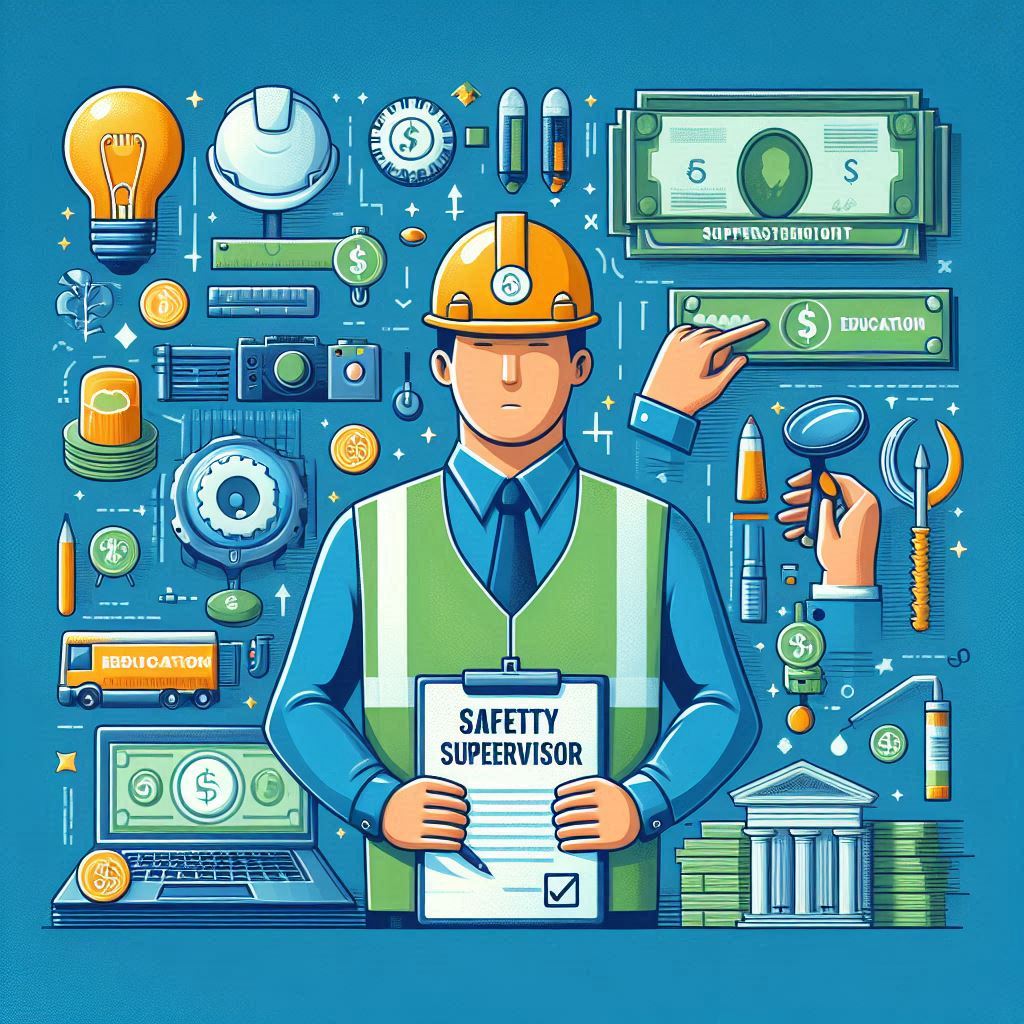
The Role of a Safety Supervisor: Responsibilities, Education, Investment, and Salary
Milan SafetyShare
The Role of a Safety Supervisor: Responsibilities, Education, Investment, and Salary
In today’s world, workplace safety is a top priority for organizations across industries. Safety Supervisors play a crucial role in ensuring that companies meet safety standards and maintain a safe environment for employees. This blog will explore the key responsibilities of a Safety Supervisor, the educational qualifications required, the investment in training, and the potential salary one can expect in this role.
1. Role and Responsibilities of a Safety Supervisor
A Safety Supervisor is responsible for overseeing the safety practices of a workplace to ensure that all employees are working in a hazard-free environment. They ensure that safety protocols are followed, conduct safety inspections, and take corrective action when necessary. Key responsibilities include:
- Monitoring Safety Compliance: Ensuring that the company adheres to safety regulations, standards, and policies.
- Conducting Risk Assessments: Identifying potential hazards and assessing the risks involved in various work processes.
- Training Employees: Conducting safety training programs for employees to make them aware of safety procedures, emergency protocols, and the use of safety equipment.
- Incident Investigation: Investigating workplace accidents, identifying root causes, and implementing corrective measures.
- Safety Audits: Performing regular safety audits and inspections to identify unsafe practices and areas for improvement.
- Emergency Preparedness: Ensuring that proper emergency procedures are in place and that employees are trained to respond effectively in case of an emergency.
- Documentation: Maintaining detailed records of safety procedures, training, accidents, and audits.
2. Educational Qualifications and Certifications
Becoming a Safety Supervisor typically requires a combination of education, certifications, and experience in the field of occupational health and safety (OHS). The following are common qualifications:
- Bachelor’s Degree: Many Safety Supervisors hold a degree in Occupational Health and Safety, Environmental Science, Industrial Engineering, or a related field.
-
Certifications:
- NEBOSH (National Examination Board in Occupational Safety and Health): The NEBOSH International General Certificate (IGC) is widely recognized and respected in the industry.
- IOSH (Institution of Occupational Safety and Health): Completing the IOSH Managing Safely course can boost one’s credentials.
- OSHA (Occupational Safety and Health Administration) certifications, particularly for those working in the U.S.
- First Aid and CPR Certification: Many companies prefer candidates with first aid training.
- Experience: Practical experience in a safety-related role is essential for advancing into supervisory positions.
3. Investment Required
The investment to become a Safety Supervisor varies depending on the region, education path, and certifications chosen. Key investment areas include:
- Education Costs: A bachelor's degree in a relevant field can cost anywhere between $5,000 to $50,000, depending on the country and institution.
-
Certification Costs:
- NEBOSH IGC certification typically costs around $500 to $2,000.
- IOSH Managing Safely courses cost between $300 to $1,000.
- OSHA certification courses range from $100 to $500.
- Time Investment: Achieving the necessary education and certifications can take between one to four years, depending on the chosen path.
It’s also important to invest in ongoing professional development, as safety regulations and industry standards frequently evolve.
4. Salary Expectations
The salary of a Safety Supervisor can vary widely based on location, industry, and level of experience. Here’s a general overview of salary expectations:
- Entry-Level Salary: New Safety Supervisors typically earn between $40,000 to $60,000 annually.
- Mid-Level Salary: With a few years of experience, Safety Supervisors can earn between $60,000 to $80,000.
- Senior-Level Salary: Experienced professionals can expect to earn between $80,000 to $100,000 or more, especially in high-risk industries like construction, oil and gas, or manufacturing.
In countries like the U.S. or the UK, the salary can be higher due to stricter regulations and the importance of safety roles. In India and other regions, the salary may range from ₹3,00,000 to ₹7,00,000 per annum depending on the company and location.
5. Conclusion
Becoming a Safety Supervisor is a rewarding career path for individuals passionate about workplace safety and health. It offers not only a competitive salary but also the opportunity to make a significant impact on employee well-being. With the right education, certifications, and experience, you can build a successful career in this field while playing a pivotal role in fostering a safe work environment.